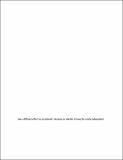| dc.description.abstract |
Reseña:This article argues that in electoral democracies political competition has theexact opposite effect on judicial independence than it purportedly has in consolidateddemocracies: it hinders rather than promotes the maintenance of independent courts. Thearticle proposes a rational-actor (as opposed to cultural or institutional) theory of judicialindependence in electoral democracies. The theory of strategic pressure posits that, inelectoral democracies, political competition: 1) increases the benefits to incumbents ofdependent courts; 2) increases the number of court cases whose outcomes matter toThis article argues that in electoral democracies political competition has theexact opposite effect on judicial independence than it purportedly has in consolidateddemocracies: it hinders rather than promotes the maintenance of independent courts. Thearticle proposes a rational-actor (as opposed to cultural or institutional) theory of judicialindependence in electoral democracies. The theory of strategic pressure posits that, inelectoral democracies, political competition: 1) increases the benefits to incumbents ofdependent courts; 2) increases the number of court cases whose outcomes matter toincumbents; and 3) fails to increase the costs of exerting pressure on the courts. As aresult, weak incumbents (i.e. those who face stronger competition and a higherprobability of losing the next election) are more likely to try to extract favorable judicialdecisions in a greater number of cases, which leads to the politicization of justice and thesubordination of the courts to the executive. I test the predictions of the strategic pressuretheory on the judicial output of two electoral democracies—Russia and Ukraine.Empirical analysis of court decisions in disputes about the registration of candidates inparliamentary elections shows that the more competitive regime (Ukraine) exhibits alower level of judicial independence. This finding is in line with the prediction of thestrategic pressure theory. |

